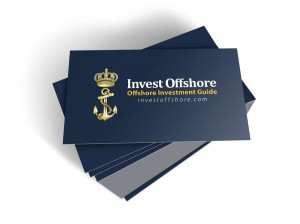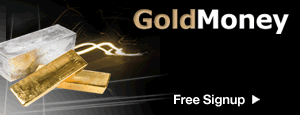| March 30, 2013 |
| Offshore Investment Guide |
|
Hi ,
Never before have Tax Havens and Offshore Financial Centers been in the media as much as this past week. Even National Public Radio (NPR) covered the topic with an interview on syndicated radio, of a Professor (expert in offshore), from the University of Michigan. All this attention has been brought about by Cyprus, as the world watches bankruptcy unfold. This incident has coined a new term; the "bail-in" - the act of bank deposit seizure by EU central banksters (they've now become), to back-stop a sovereign nation from insolvency.
Meanwhile, the BRIC Nations (Brazil, Russia, India, China and South Africa) made announcements, at a summit in Durban, South Africa, sending an unmistakable message, that the largest trading block in history (combined GDP of $14 Trillion), is moving away from the U.S. Dollar as a reserve currency. The world of finance is now changing very rapidly, so it's never been more important as it is now, to have a strong asset protection plan in place.
Aaron A Day

|
| The Best Places to Get Started in Offshore Banking and Investing |
| Are you looking to go offshore?
If you've already made the decision you're going to diversify and protect your assets by taking your investments offshore, there are quite a few options you have. If you want to get started on the best footing, however, there are a few counties and locales which are more desirable when looking for an opportunity than others. It's not to say there aren't other markets or asset opportunities in other areas but these locations are a good start and generally might have something more to offer someone who is just getting their feet wet in international banking waters.
 Luxembourg is one of the richest per capita nations in Europe and offers many of the same investment advantages when it comes to banking as Switzerland - with fewer taxes for non-residents, to boot. Internet banking is very safe and convenient and hasn't yet been invaded by it's own government bureaucracy. Luxembourg is one of the more popular tax havens in Europe and has a long history of offshore investment opportunities including offshore insurance and investment fund management. While being a leading financial center in Europe, the country doesn't tax interest for offshore bank accounts so it remains a good choice for someone looking to increase their capital while protecting their assets. Luxembourg is one of the richest per capita nations in Europe and offers many of the same investment advantages when it comes to banking as Switzerland - with fewer taxes for non-residents, to boot. Internet banking is very safe and convenient and hasn't yet been invaded by it's own government bureaucracy. Luxembourg is one of the more popular tax havens in Europe and has a long history of offshore investment opportunities including offshore insurance and investment fund management. While being a leading financial center in Europe, the country doesn't tax interest for offshore bank accounts so it remains a good choice for someone looking to increase their capital while protecting their assets.
Switzerland is, of course, renowned for their secrecy and investor protection laws while being one of the most politically stable and professionally competent (to say the least) countries for business worldwide. Recent legal and political developments outside Switzerland have put pressure on Swiss bankers and financiers to crack down on expatriates and foreign investors seeking a way to avoid taxes, though. And many Swiss banks have higher than average requirements for minimum deposit amounts, making it a little tougher for the average banker to find an easy protection opportunity.
Malta is another European country with a growing banking sector and an easier-than-ordinary residency policy for people seeking to expatriate. Free from currency controls, Malta has a stable banking system with accounts available in various currencies. An even more attractive inducement is the country is a member of the EU and also uses the Euro as an official currency. While not completely free of taxes, the tax rate is very reasonable with residents responsible for a flat 15% rate for their local income. Big bonus: your entire worldwide income (capital gains, unearned or earned) is free from tax. The stipulation to this is you need to be a permanent resident of the country, which means applying for and meeting the necessary requirements.
Panama is another attractive option for offshore investors. Panama has experience and a long history of working with American clients and offers a legal system very co-habitable with the American system. This is thanks to a long and varied history of the country's participation in international business endeavors. The political and economic climate is very stable due in part to the Panama Canal, which major nations rely on for shipping passage. Panama is a tax-free climate for banking and imposes no tax on offshore business companies who don't operate in business operations within the Panamanian jurisdiction.
In some cases, investing offshore includes creating a company and incorporating in the host country. An offshore bank in Belize is an affordable option for setting up an account. Here's an approximate list of very competitive fees, including:
- $900 for basic incorporation in Belize
- $85 for a corporation seal
- $650 to open a bank account in a second country, Singapore
- $690 to assign an account manager
- Total startup cost - $2,415
But cost is related to exactly what you're doing with an offshore account. Some banks require a corporation, some might even require you to own a home in the country where the account is located. And some accounts may have steep minimums: from $100,000 to a million or more.
The benefits of offshore investing
Privacy: Under U.S. law, it's fairly easy for the government, or in some cases even private citizens, to gain insight into your financial activities. But some countries still have laws that they enforce, preventing banks from giving out any information about account holders.
Asset protection: Since your offshore bank account is protected by privacy laws, that makes it difficult for anyone to find your account or learn how much money you have. That could protect your assets from being seized. For example, if a surgeon is sued for medical malpractice, he might be able to shield assets this way.
Higher returns: The average interest rates on savings accounts have plummeted in recent years. For example, as of March 30, the highest rate Bankrate found on savings and MMA accounts was 1.01 percent, with a $25,000 minimum opening deposit. Other countries might offer higher rates.
Tax Deferral: Companies can use offshore accounts to defer their U.S. taxes. For example, if you own a company that does business outside the United States, depositing international profits into a U.S. bank account means paying taxes on them. Put those profits in an offshore account, however, and you won't have to pay taxes until the money comes back into the country.
Bottom line? Offshore accounts can offer advantages for those who can afford them, but the complexity and high cost keep them out of the reach of average people.
For a more information about the Cross Borders Retirement Plan contact us today.
|
| Is Cyprus telling us to Buy Tech, Sell Financials? |
|
Over the last few weeks we've published a series of articles to help investors understand what will be the primary global economic drivers for the next ten years. These three drivers were:
Now that we have set the table lets see which investment's can profit the most from these drivers. In the forthcoming columns I will present ten investment themes that will profit from the demographic, economic and political situation we will face over the next ten years.
Investment Theme 2: Technology
According to Standard and Poor website the two largest components of the S&P500 index are Info Tech, which accounts for 18.12%, and Financials, which represent 16.16% of the benchmark. In the institutional world, when a portfolio manager is involved with pension funds or mutual funds, the internal risk controls of the firm and the bonus structure usually translate into an exposure to both sectors in proportion similar to the index. Therefore most funds' benchmark to the S&P500 are approximately 18% in technology and 16% in financials. The institutional philosophy is one of "Don't rock the boat, just beat the index by 0.5%, this will guarantee bonuses and a long career... " If the market rises by 20% and you deliver 20.5% you are a star. If it drops by 20% and you "only" drop by 19.5%, there again you are stellar. You can pass go and collect a bonus, which usually account for up to three times your based salary.
As a single investors you need to decide if this quasi-indexing approach is right for you. The quasi-indexing approach guarantees to reduce the relative risk of your portfolio vis-à-vis the benchmark (the deviation versus the index) but it doesn't consider the absolute risk of your investment, or if you prefer the possibility of losses forward. Lets say that you greatly dislike Energy stocks, would you be holding a 10% weighting in them in fear of being wrong? (The benchmark is at 11.04%). If you answer no to this question than be aware that your mutual funds and pension funds are doing just that.
I am of the view that professional asset managers should break out of the indexing approach and take calculated risk with their investor's capital. The goal of all investors is to protect and grow his capital in time, not to beat a given benchmark. The benchmark approach works well in bull markets but can be painful in bear markets.
Since 2007, except for some limited exceptions, Clover has stayed away from Financials. This means that the average investor in our firm has less than 2% exposure to Banks and Insurance Companies. At the start we were worried with the bank mortgage exposures and since 2009 we have avoided the financial sector because of the lack of transparency, (JP Morgan comes to mind...). We also stayed away from Financials because we expected the situation in Europe to get worse and to contaminate the globalized banking sector. The wake up call we received from Cyprus this weekend may be the start of something much bigger.
The lack of investment in the financial sector creates an increased relative risk in our investors' portfolios but we are of the view that it reduces the absolute risk going forward. There is no denying that Financials are a growth engine in a portfolio during times of economic prosperity. However we doubt that in a rising rates environment, where banks are sitting on billions in long-term sovereign debts, we would see much value in the coming years. Therefore how should investors grow their assets without financial sector exposure? We believe in overweighting technology, healthcare and biotech (We will discuss healthcare and biotech at a later date).
After experiencing the bubble of the early 2000's, the technology sector has matured and is now focused on delivering top and bottom line returns. Who would have thought 10 years ago that Apple would pass Exxon in market capitalization? Over the recent years Technology was one of the best sectors for wealth creation and we see no reason for this to change over the next ten years. The slow growth economy the world is tangled in is a great environment for technology as increases in productivity will be key to growing the bottom line for most corporations going forward. We also believe that the love for everything electronic, demonstrated by consumers over the last few years, will continue.
There are multiple diversified avenues available for investors to participate in the technology sector. One of the most popular is the Select Sector SPDR-Technology (XLK). XLK presents a 4 star rating from Morningstar and is highly liquid with close to 8 million units traded everyday. There is one flaw with this investment, its concentration toward its five largest holdings. The fund presents close to 43% of its assets in Apple (13.6%), IBM (7.6%), Google (7.4%), Microsoft (7.2%) and AT&T (7%). Therefore as these five stocks go, so goes XLK. If you can stomach the higher volatility that comes with smaller cap exposure I would recommend looking at the Guggenheim S&P 500 Equal Weight Technology ETF (RYT). This ETF invest in the same 70 stocks as XLK but invests the same dollar amount in each security, providing investors with better diversification. However there is a cost to this diversification, the fund charges a gross expense ratio of 0.5% compare to 0.18% for XLK. The rebalancing required for equal weight ETFs such as RYT also leads to higher transaction fees and lower tax efficiency. However equally weighted ETFs protect you against the collapse of one given stock, such as Apple in early 2013. When compared, the performance of both ETFs is similar over time.
The other avenue, when investing in technology, is to buy stocks directly. No portfolio would be complete without at least one of the four growth leaders that are Amazon (AMZN), Apple (AAPL), Facebook (FB), and Google (GOOG). These four players, which were each providing distinct products historically, are gradually morphing into each other and will offer an amazing turf war in the coming years. (Please read WSJ Jessica E. Lessin article for more on the subject). It is difficult to pick the winner, therefore we recommend owning two or three of them. Our clients invest in AAPL, FB and GOOG. We sadly didn't invest in AMZN over the last few years, judging that the stock was too pricey, a costly mistake so far.
For more information on how Clover Asset Management can help grow your wealth please contact us at +1 (345)743-6639 or email us at forwardthinking@clover.ky
|
| Semi-Annual Autocallable Notes - China, Europe & Taiwan |
|

For Professional Investors Only
Key Features
Investment linked to the benchmark equity indices of China, Europe & Taiwan, providing the opportunity for semi-annual returns of up to 6.5% (13% p.a.) in USD, 6.0% (12% p.a.) in GBP, 5.5% (11% p.a.) in EUR, and 9 opportunities for early redemption over a 5 year investment term.
Investment Description
- The Nomura Semi-Annual Autocallable Notes ("the Notes") are linked to the benchmark equity indices of China, Europe and Taiwan
- The Notes provide investors with the potential for returns of 6.5% in USD, 6.0% in GBP and 5.5% in EUR for each semi-annual period over the life of the investment, combined with 9 opportunities for early redemption
- The Notes are issued by Nomura Bank International plc ("the Issuer"), which is rated by S&P as A-, at the time of publication
- The Notes are issued in GBP, USD, and EUR, have an investment term of up to 5 years, and are intended to be held for the entire period
NOTE: closing April 8, 2013
Issuer: Nomura Bank International plc (NBI), rated as A- by S&P
- A 5 year investment linked to the performance of the benchmark equity indices of China, Europe and Taiwan
- The Notes will "Autocall‟ triggering an Automatic Redemption if on any semi-annual Observation Date all the Underlying Assets are greater than or equal to their Initial Valuation Level
- In the case of Automatic Redemption the Notes return 100% of capital invested and the investor shall receive the Coupon Amount for each semi-annual period the Notes have been active i.e. if the Notes are automatically redeemed at the end of year 3, an investor in the USD notes will receive a Redemption Amount of 6.5% x 6, plus 100% of initial capital
- Capital is at risk with this product: A fall of 50% or more in Performance is required in any Underlying Asset before capital is at risk. The Performance is measured by comparing the Initial Valuation Level to the Final Valuation Level on the Final Valuation Date. If any Performance measures a fall of 50% or more investors will receive the Performance of the Worst Performing Asset at maturity
Underlyings:('Assets')
- Hang Seng China Enterprises Index (HSCEI Index)
- Euro Stoxx 50 Index (SX5E Index)
- MSCI Taiwan Index (TAMSCI Index)
ISIN Codes
- USD - XS0904224218
- EUR - XS0904224309
- GBP - XS0904224481
The Notes are available in USD, EUR and GBP
Risk Disclaimer: Please bear in mind that investors are exposed to the credit risk of the Issuer. The Notes are not capital protected and investors may receive back less than the original amount invested. The value of the investment can go down as well as up and investors can potentially lose all of their investment. Any secondary market provided by Nomura International plc is subject to change and may be stopped without notice and investors may therefore be unable to sell or redeem the Notes until their maturity. If the Notes are redeemed early they may be redeemed at a level less than the amount originally invested.
The NOMURA Autocallable Notes brochure, available upon request.
|
| Brazil Resort Property - Beautiful Beach
|
Beachfront Development Property - Zoned for Hotel or Gated Community - $3,300,000 USD
Location: São Miguel do Gostoso, Rio Grande do Norte.

Land located on the spectacular beach of São Miguel do Gostoso has 250 meters of beach frontage and a total of 141.815m2.
- 5 plots of 50 meters each of flat beautiful beach.
- The boundaries are the North Atlantic Ocean and the South, the road Sao Miguel do Gostoso / Reduto. (road to Tourinhos)
- Great for resorts, lodges, condos or beach houses.
- The deed of the land is registered in the Registry Office competent Real cartório Notarial de Touros, Rio Grande do Norte.
- We can also sell the land already approved for gated neighborhood or resort.
Request more information about Brazil properties.
|
| Offshore Gold Storage |
|
You can store your metals with:
- VIA MAT - in vaults in Hong Kong, Switzerland and the UK.
- Brink's - in vaults in Toronto and Singapore.
- Rhenus - in a vault at Zurich Airport in Switzerland.
- G4S - in a vault in Hong Kong.

Ready to invest offshore in precious metals? click here
| |
|

 Luxembourg is one of the richest per capita nations in Europe and offers many of the same investment advantages when it comes to banking as Switzerland - with fewer taxes for non-residents, to boot. Internet banking is very safe and convenient and hasn't yet been invaded by it's own government bureaucracy. Luxembourg is one of the more popular tax havens in Europe and has a long history of offshore investment opportunities including offshore insurance and investment fund management. While being a leading financial center in Europe, the country doesn't tax interest for offshore bank accounts so it remains a good choice for someone looking to increase their capital while protecting their assets.
Luxembourg is one of the richest per capita nations in Europe and offers many of the same investment advantages when it comes to banking as Switzerland - with fewer taxes for non-residents, to boot. Internet banking is very safe and convenient and hasn't yet been invaded by it's own government bureaucracy. Luxembourg is one of the more popular tax havens in Europe and has a long history of offshore investment opportunities including offshore insurance and investment fund management. While being a leading financial center in Europe, the country doesn't tax interest for offshore bank accounts so it remains a good choice for someone looking to increase their capital while protecting their assets.






 Home Page
Home Page